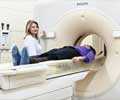New study examines how the incentives in an alternative payment model might have an influence on the cost, quality, utilization and technological investment for radiology practices.

‘New mathematical model helps analyze and improve Medicare Shared Savings Program (MSSP) with a focus on computed tomography (CT) scan use.’





Hughes and his co-investigators specifically studied the Medicare Shared Savings Program (MSSP) for ACOs and developed a mathematical model to analyze and improve MSSP with a focus on computed tomography (CT) scan use. The researchers found that provider participation in ACOs occurs at very different cost benchmarks and physician provider shares vary according to the cost benchmarks set between payers and ACOs. They also learned that the dynamic relationship between provider shares and the cost threshold have important implications on utilization and patient health, and that ACO participation reduces the likelihood that hospitals will invest in new technology.“Our health care system is so complex that it is difficult to foresee the consequences of proposed policies and organizational changes,” said Christian Wernz, PhD, a Neiman Institute grantee and assistant professor of industrial and systems engineering at Virginia Tech. “Our research aims to provide policy makers, payers and hospital executives with decision support that is based on rigorous, evidence-based analyses. Our ultimate goal is to find ways improve health outcomes for patients while lowering costs.”
Hughes and his co-authors note that although their research only considers the Centers for Medicare & Medicaid Services’ ACO SSP, it is likely that many of their results are applicable to radiology practices under other APM arrangements.
“Perhaps, as others have said, the unintended consequences of these programs are related to the volume of APM programs available – causing providers to question these programs’ permanence and not really change their behaviors. However, it’s always possible, as we learn from ACO SSPs that at least some of these consequences may be built into the program’s incentive structures themselves,” added Hughes.
Source-Newswise










